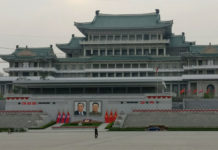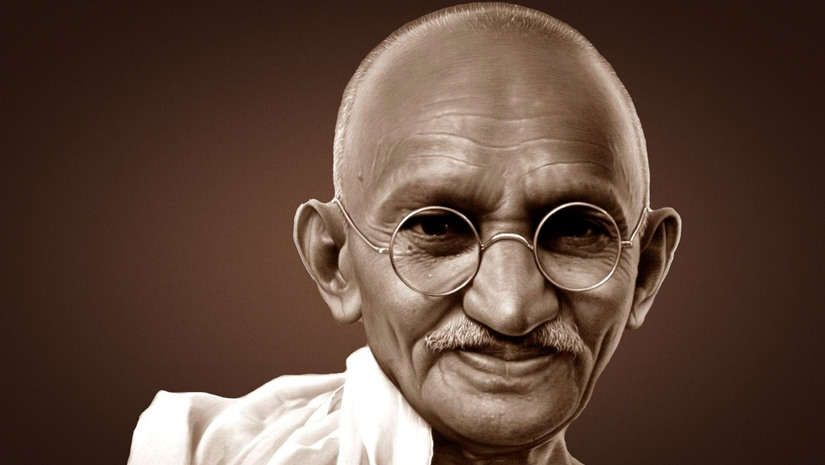Mohan das Karam chand Gandhi (1869-1948) was one of the most important historical figures.Being influenced by the teachings of Hinduism, Christianity, Henry David Thoreau, John Ruskin and Leo Tolstoy; Gandhiji introduced nonviolence to lead India’s struggle for liberation from British rule.
The three essentials of Gandhi’s nonviolent direct action are
1. constructive programs (spiritual, educational and economic development);
2. Non-cooperation (strikes and boycotts);
3. civil disobedience (protests, marches and other demonstrations).
Gandhi’s legacy of nonviolence became a permanent fixture in the political world- in East European and Central Asian independence movements of the early 1990s and most importantly in the U.S. civil rights movement led by Martin Luther King Jr. during the 1960s.
Here are some of the teachings of Gandhiji that if incorporated in our daily life, we can lead a peaceful life away from all kinds of stress.
1. A civilization is to be judged by its treatment of minorities.
2. All faiths constitute a revelation of Truth, but all are imperfect.
3. All fear is a want of faith.
4. All other pleasures and possessions pale into nothingness before service which is rendered in a spirit of joy.
5. A nonviolent resister cannot wait or delay action till perfect conditions are forthcoming.
6. A nonviolent revolution is not a program for the seizure of power. It is a program for the transformation of relationships ending in a peaceful transfer of power.
7. A small body of determined spirits fired by an unquenchable faith in their mission can alter the course of history.
8. Capital as such is not evil; it is its wrong use that is evil.
9. Civil disobedience without constructive programs is bound to fail.Cooperation with good is as much a duty as noncooperation with evil.
10. Do not undertake anything beyond your capacity, and at the same time do not harbor the wish to do less than you can. One who takes up tasks beyond his powers is proud and attached. On the other hand, one who does less than he can is a thief.
11. Do not worry about what others are doing! Each of us should turn the searchlight inward and purify his or her own heart as much as possible.
12. Each step upward makes me feel stronger and fit for the next step.
13. Every one of my failures has been a stepping stone.
14. Every right carries with it a corresponding duty.
15. Everything is done openly and above board, for truth hates secrecy.
16. Exploitation is the essence of violence.
17. Faith does not admit of telling. It has to be lived and then it becomes self-propagating. Faith is nothing but a living, wide-awake consciousness of God within.
18. Fearlessness is the first requisite of spirituality. Cowards can never be moral.
19. For a nonviolent person the whole world is one family. He will thus fear none, nor will others fear him.
20. Freedom won through bloodshed or fraud is no freedom.
21. Given the opportunity, every human being has the same possibility for spiritual growth.
22. God is conscience. [God] reveals Himself daily to every human being but we shut our ears to “the still small voice.”
23. Good government is no substitute for self-government.
24. I am a Christian and a Hindu and a Moslem and a Jew.
25. I am an uncompromising opponent of violent methods even to serve the noblest of causes.
26. I believe in the essential unity of man and, for that matter, all that lives. Therefore, I believe that if one man gains spiritually, the whole world gains with him; and, if one man falls, the whole world falls to that extent.
27. I believe that no government can exist for a single moment without the cooperation of the people, willing or forced, and if people suddenly withdraw their cooperation in every detail, the government will come to a standstill.
28. I can retain neither respect nor affection for a government which has been moving from wrong to wrong in order to defend its immorality.
29. I did not move a muscle when I first heard that the atom bomb had wiped out Hiroshima. On the contrary, I said to myself, “unless now the world adopts non-violence, it will spell certain suicide for mankind.”
30. If a father does an injustice, it is the duty of his children to leave the parental roof. If the headmaster of a school conducts his institution on an immoral basis, the pupils must leave the school. If the chairman of a corporation is corrupt, the members thereof must wash their hands clean of his corruption by withdrawing from it; even so, if a Government does a grave injustice, the subjects must withdraw cooperation wholly or partially, sufficiently to wean the ruler from his wickedness.
31. If one takes care of the means, the end will take care of itself.
32. Individuals or nations, who would practice nonviolence, must be prepared to sacrifice [everything] except honour.
33. In the secret of my heart I am in perpetual quarrel with God that He should allow such things to go on. (written in September 1939 at the start of World War II)
34. Intolerance betrays want of faith in one’s cause.
35. It has always been a mystery to me how men can feel themselves honoured by the humiliation of their fellow beings.
36. It is a million times better to appear untrue before the world than to be untrue to ourselves.
37. I want freedom for the full expression of my personality.
38. Love is the law of life.Love never claims, it ever gives.
39. No human being is so bad as to be beyond redemption.
40. No man could be actively nonviolent and not rise against social injustice no matter where it occurred.
41. No matter how insignificant the thing you have to do, do it as well as you can, give it as much of your care and attention as you would give to the thing you regard as most important.
42. Nothing enduring can be built on violence.
43. Real disarmament cannot come unless the nations of the world cease to exploit one another.
44. Recall the face of the poorest and the most helpless man whom you may have seen and ask yourself, if the step you contemplate is going to be of any use to him. Will he be able to gain anything by it? Will it restore him to a control over his own life and destiny?
45. Religions are different roads converging on the same point.
46. Religion which takes no account of practical affairs and does not help to solve them is no religion.
47. Rights that do not flow directly from duty well performed are not worth having.
48. Satisfaction lies in the effort, not in the attainment. Full effort is full victory.
49. Silence becomes cowardice when occasion demands speaking out the whole truth and acting accordingly.
50. Strength of numbers is the delight of the timid. The valiant in spirit glory in fighting alone.
51. Terrorism and deception are weapons not of the strong but of the weak.
52. The danger is greatest when victory seems nearest.
74. The fabled godly Elephant King… was saved only when he thought he was at his last gasp.
53. The first principle of nonviolent action is that of noncooperation with everything humiliating.
54. The fullest life is impossible without an immovable belief in a Living Law in obedience to which the whole universe moves.
55. The highest moral law is that we should unremittingly work for the good of mankind.
56. The problem is a world problem. No nation can find its own salvation by breaking away from others. We must all be saved or we must all perish together.
57. There is a power now slumbering within us, which if awakened would do to evil what light does to darkness.
58. The right to err, which means the freedom to try experiments, is the universal condition of all progress.
59. To believe that what has not occurred in history will not occur at all is to argue disbelief in the dignity of man.
60. Truth never damages a cause that is just.
61. Violence is suicide.
62. We are all children of one and the same God and, therefore, absolutely equal.
63. We hug the chains that bind us.
64. We leave things to Fate after exhausting all the remedies.
65. We may attack measures and systems. We may not, we must not, attack people. Imperfect ourselves, we must be tender toward others and slow to impute their motives.
66. We may not be God but we are of God — even as a little drop of water is of the ocean.
67. What is possible for one is possible for all.
68. When we disobey a law, it is not for want of respect for lawful authority, but in obedience to the higher law of our being, the voice of conscience.
69. Where Love is, there God is also.
70. Where there is only a choice between cowardice and violence, I would advise violence.
71. Whilst… [conscience] is a good guide for individual conduct, imposition of that conduct upon others would be an insufferable interference with their freedom of conscience.
72. . Whomsoever you follow, howsoever great he might be, see to it that you follow the spirit of the master and not imitate him mechanically.
73. You should be pioneers in presenting a living faith to the world and not the dry bones of a traditional faith which the world will not grasp.
By: Archa Dave

























